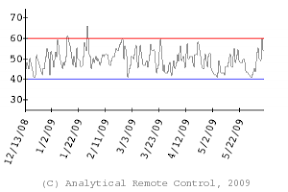A Burgular Alarm for your Credit & Public Information?
You lock your car & home when you're away....so it makes
sense to also have the same level of security for your credit, too.
To implement an automatic, early warning system for
when someone is using your name, check out myFico®'s
Identity Theft Security Deluxe service.
One of the features we liked about this service is not
only do they monitor credit data, but also numerous
public data sources which would be virtually
impossible for you to keep track of by yourself.
According to Fico, the creators of the standard score
used for most lending decisions in America today,
there's a compelling argument to be made to using
their service.
"Every week, myFICO® Identity Theft Security Deluxe
scours more than 400 different sources of public and
commercial data, looking for changes in your personal
data. We search not only credit bureaus but also
utilities, property deeds and assessment, bankruptcy
filings, vehicle data and other public sources."
The service also allows for you to keep an eye on
your Fico score in addition to your identity theft
detection.
"Every quarter, check your myFICO® Identity Theft
Security Deluxe report to see what's changed and what
it means to your FICO® score. It's the best way to
fight fraud or recover from it. And it also shows you
how your credit actions are affecting your FICO® score
and your borrowing power."
Finally, myFICO® Identity Theft Security Deluxe
features theft resolution service including a $25,000
insurance policy.
The cost of the service:
$4.95/month -or- $49.95/year (pre-paid)
So, for roughly $50 - $60 per year depending on
whether you choose a monthly or annual paid plan, it's
a very cost effective alternative to having nothing at
all to insure your identity theft prevention strategy.
For more information on this service, check out our resources section.



















